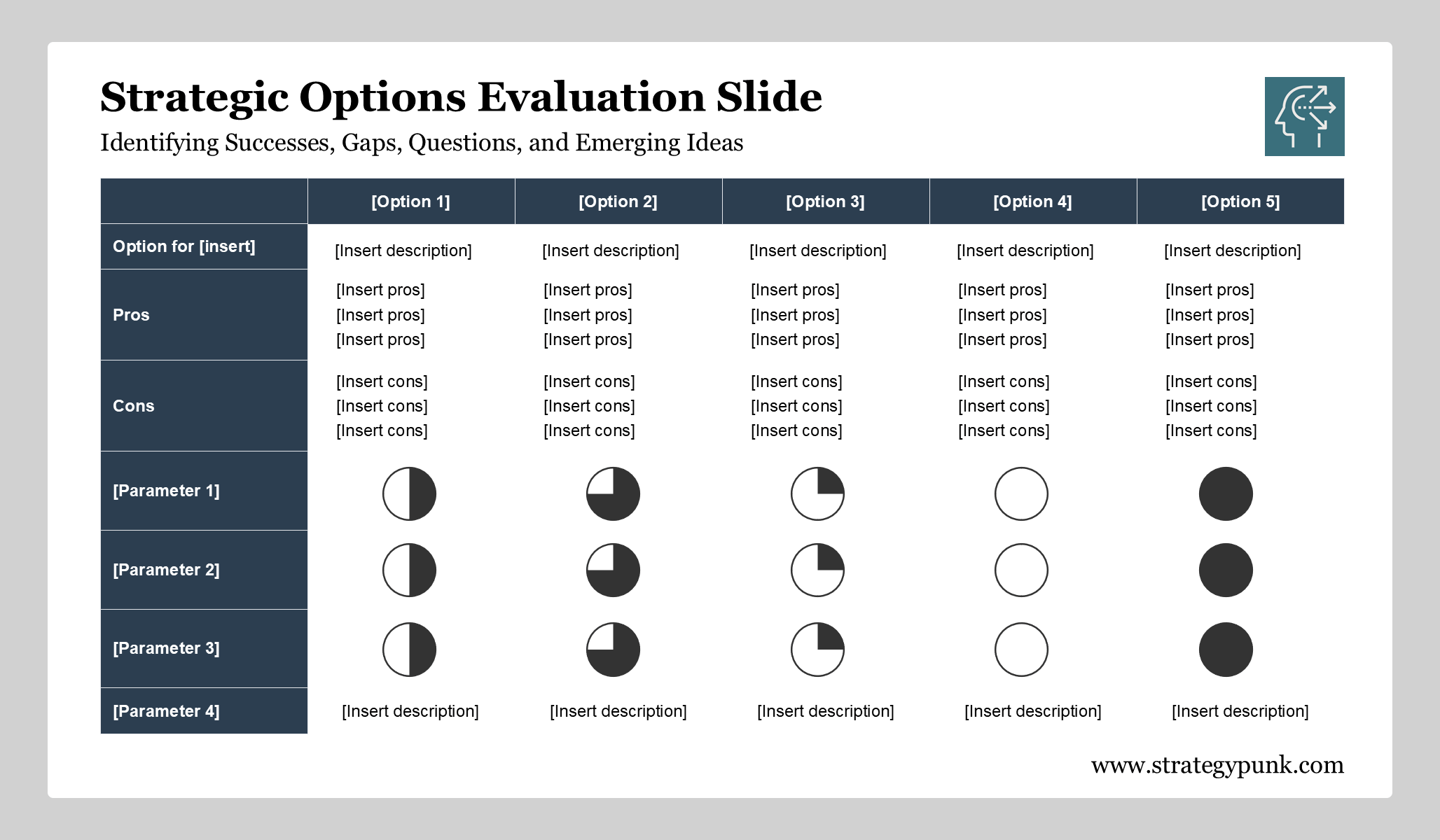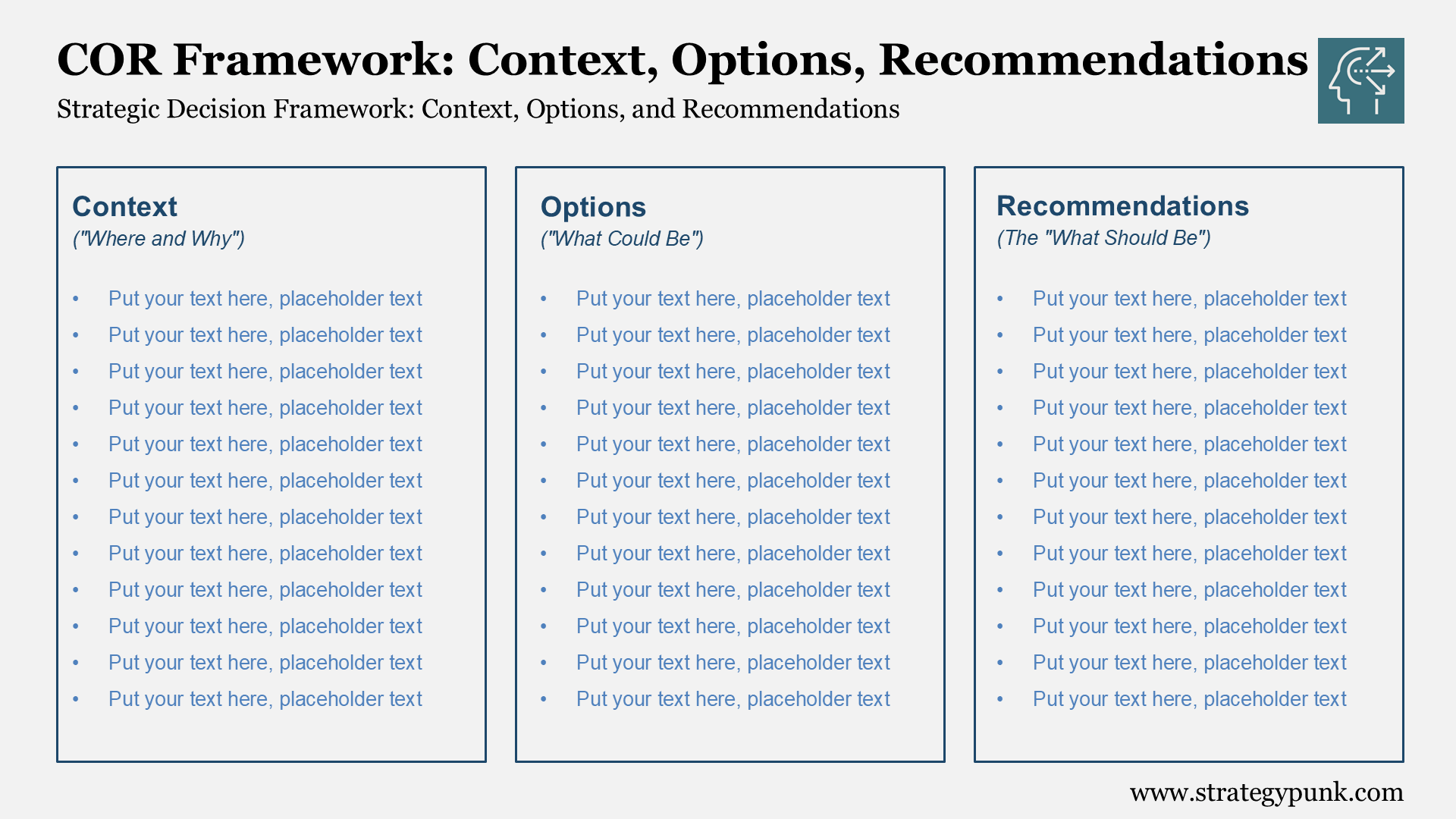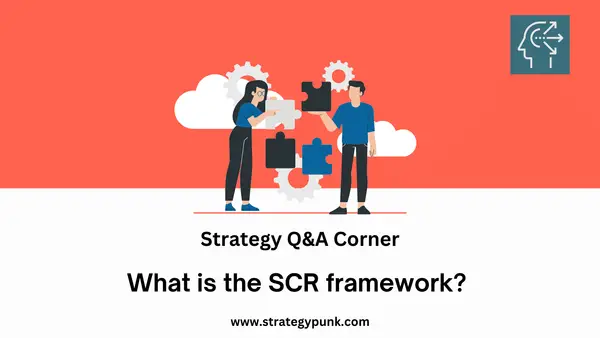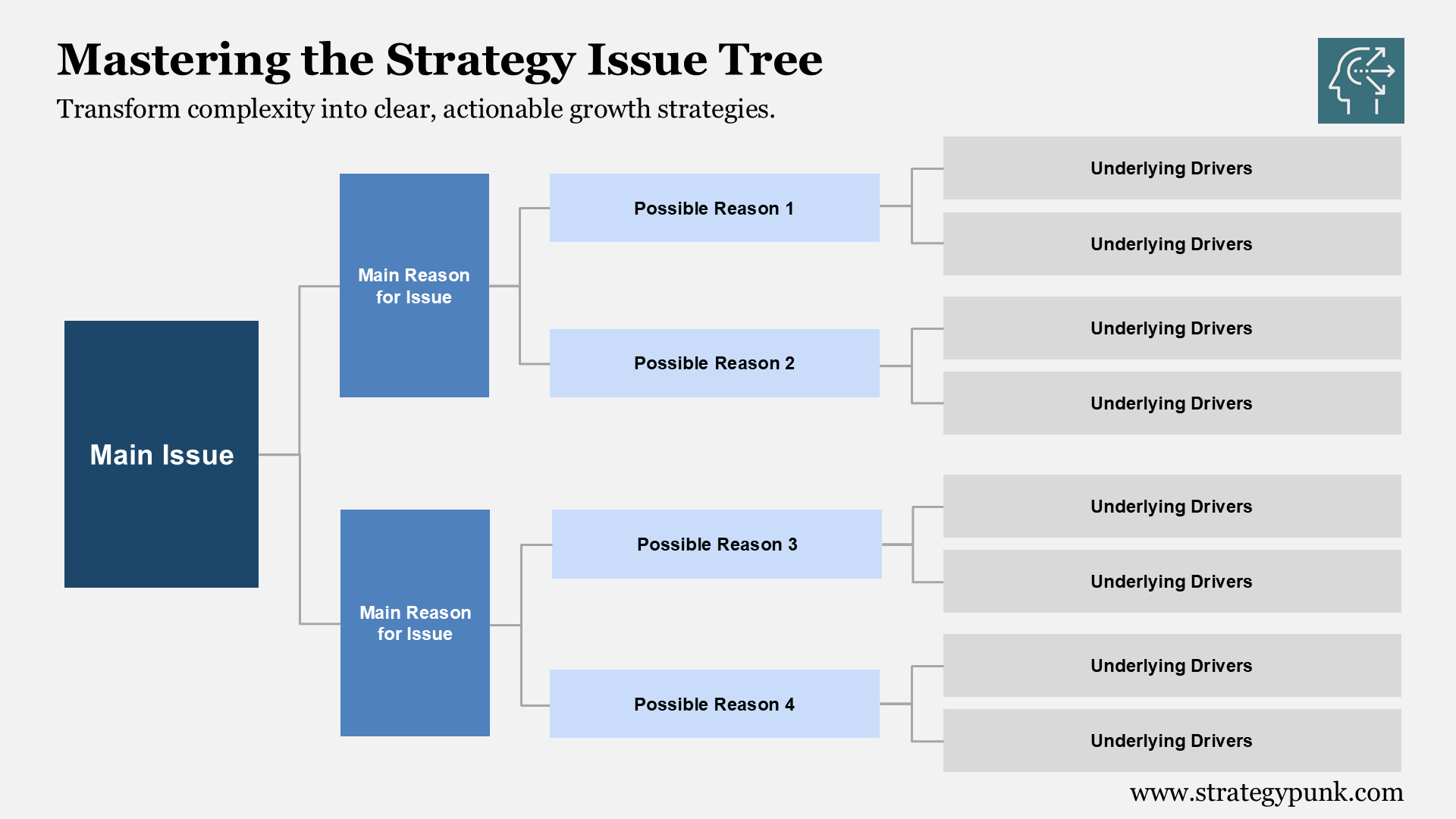Team Success Beyond Metrics: Redefining Results in Today's Agile
Discover the transformative power of Agile, a philosophy that demands a shift from traditional success metrics. Learn about Patrick Lencioni's "Inattention to Results" and how it's combated in Agile teams.
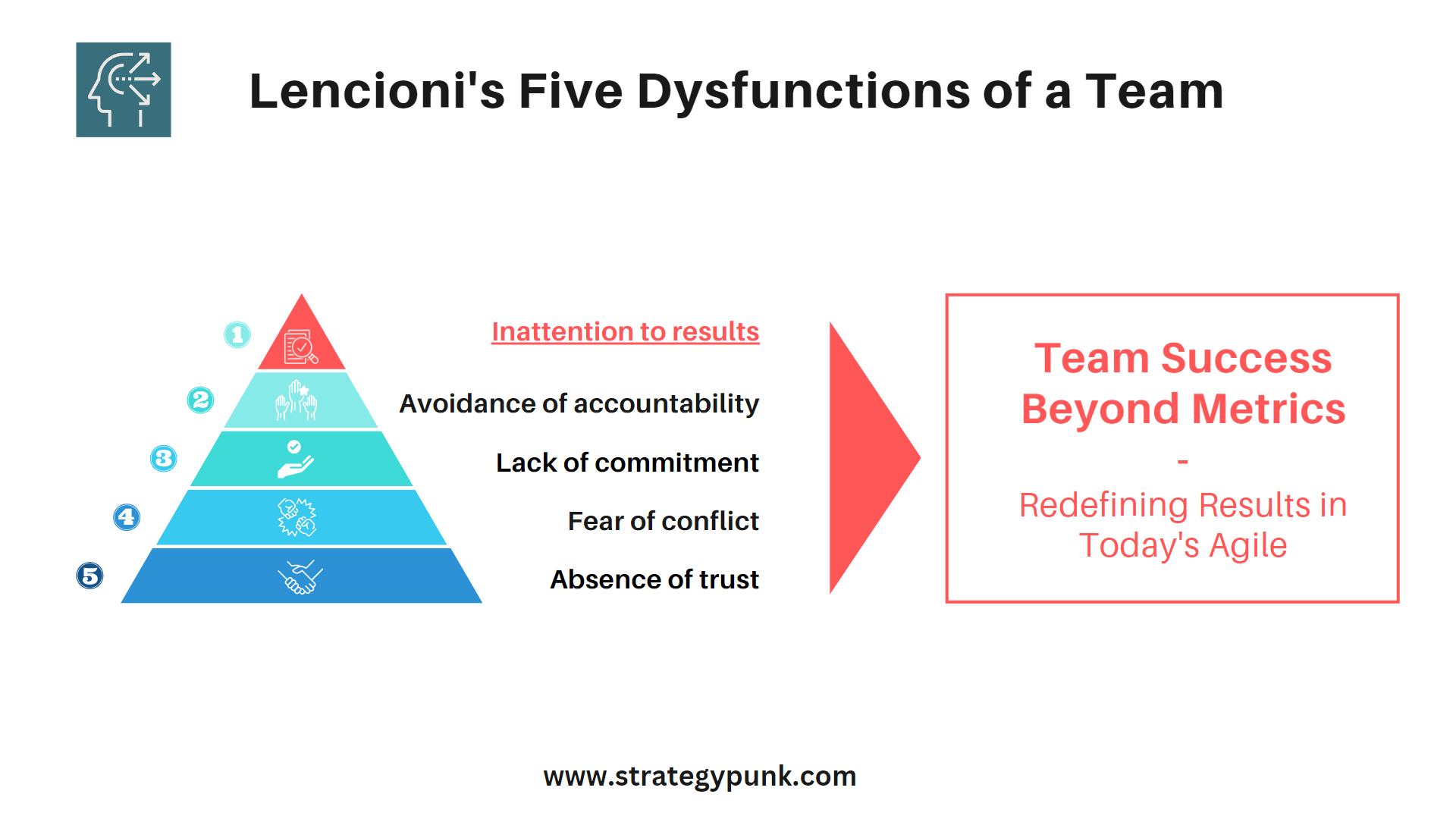
Introduction
Welcome to the Agile age, where traditional success metrics sometimes cut it.
We've been conditioned to measure team success in terms of numbers—revenues, profits, customer acquisition rates, and so on.
But Agile, with its dynamic, flexible approach, calls for a fresh perspective. So, let's delve into this.
Have you ever heard of Patrick Lencioni's "Inattention to Results"?
It's a team dysfunction we'll explore today and its significance in Agile environments. Buckle up for an enlightening journey.
Understanding Traditional Metrics and Their Limitations in Agile Environments
We've all seen traditional performance metrics—sales figures, efficiency ratios, deadlines met, etc. There's been a rule of thumb for measuring team success. But can they capture the Agile spirit? Let's see.
Agile is all about quick responses to change and continuous development. These conventional metrics, while necessary, need to embrace Agile's nuances fully.
Overemphasis on numbers can lead to a rigid environment, undermining Agile's flexible, iterative principles.
The real danger? Losing sight of customer satisfaction and team collaboration—core tenets of Agile.
The Agile Environment and Its Nuances
Agile. It's not just a buzzword; its philosophy embraces change, fosters collaboration, and focuses on delivering value quickly.
Agile teams are special. They're dynamic, adaptable, and customer-centric. They believe in continuous improvement over sticking to a plan. It's a different ball game where traditional metrics only partially capture the essence of their success.
So, what do you think is the solution? New metrics! A new definition of success that aligns with Agile's principles.
Unveiling the "Inattention to Results" Dysfunction: Lencioni's Perspective
Enter Patrick Lencioni, a guru in team dynamics. He coined "Inattention to Results" in his "5 Dysfunctions of a Team".
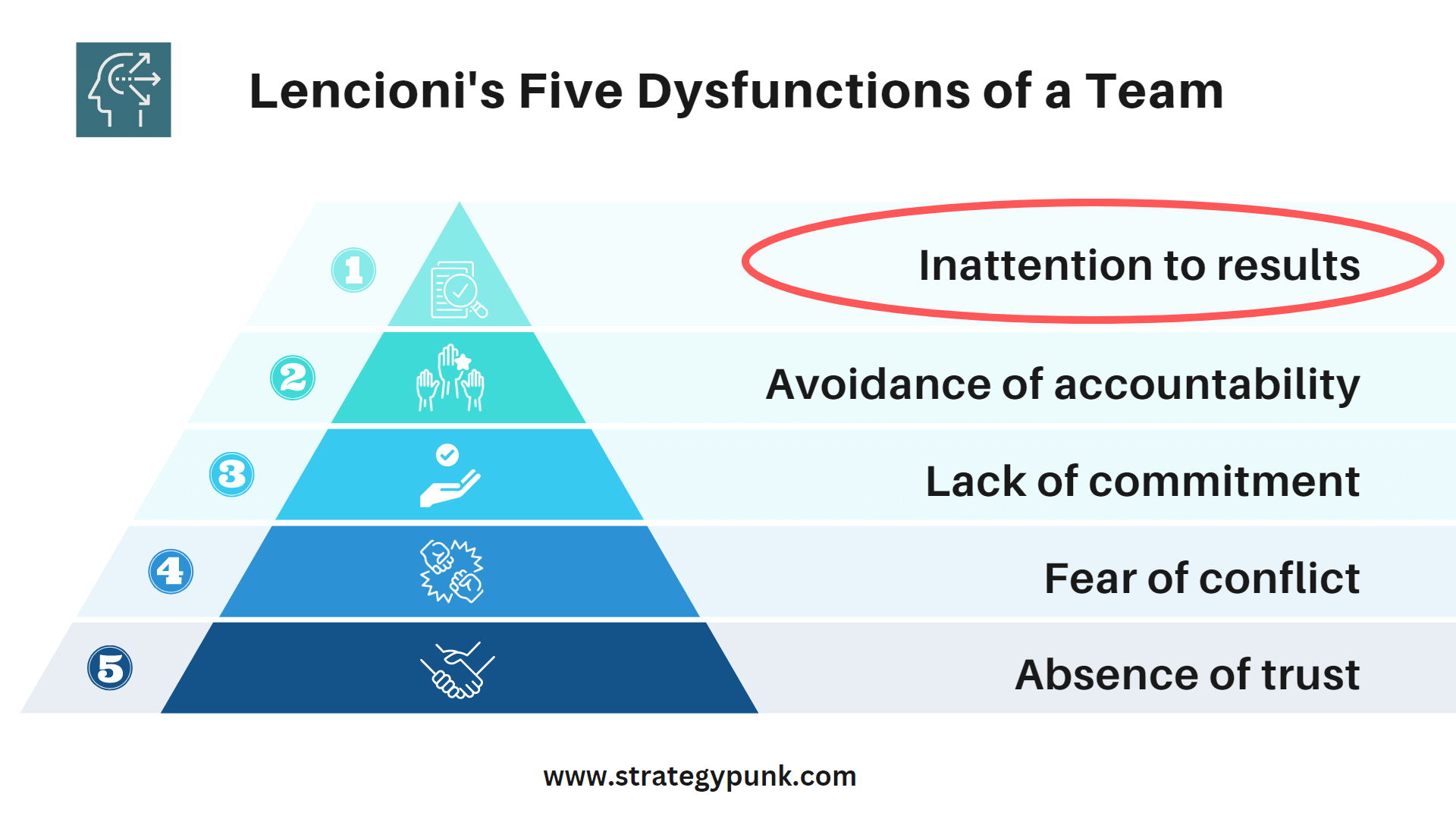
What's that? It's when team members prioritize personal achievements or team status over collective results.
Sounds scary, right? It's even more difficult in Agile, where collaboration and customer value are king.
Redefining Results in Agile: New Metrics for Success
It's time to rethink success in Agile. It's not just about numbers. It's about customer satisfaction, team collaboration, and continuous improvement.
New metrics include customer feedback, team morale, and the rate of learning from iterations. Imagine the power of a team driven by such metrics. Not only are they successful by traditional standards, but they also ensure sustainable growth and adaptability.
Let's consider a case: Team A meets its sales targets but needs more customer satisfaction and faces internal conflicts. Team B may hit different sales figures but enjoys high customer satisfaction and excellent collaboration. By traditional metrics, Team A wins. But in Agile? Team B takes the trophy.
Mitigating "Inattention to Results" in Agile Teams: A Guide
Here's the good news. These new metrics can combat "Inattention to Results." When teams focus on collective results like customer satisfaction and collaboration, they overcome the silo mentality.
The first step is awareness. Teams must understand the Agile philosophy and the potential pitfalls of conventional metrics.
Next, define new metrics. Remember, they should reflect Agile's core principles.
Finally, monitor and adapt. Use regular retrospectives to discuss these metrics and adjust as necessary.
Conclusion: Beyond Metrics to Holistic Success
We've journeyed from traditional metrics to redefining success in Agile environments.
We've also explored how this new perspective can mitigate Lencioni's "Inattention to Results" dysfunction.
It's time for Agile teams to redefine their vision of success, not just through numbers but holistic indicators that genuinely reflect the Agile spirit.
Let's not just chase numbers; build successful, adaptable, and dynamic Agile teams!
Ready to redefine your team's success?


